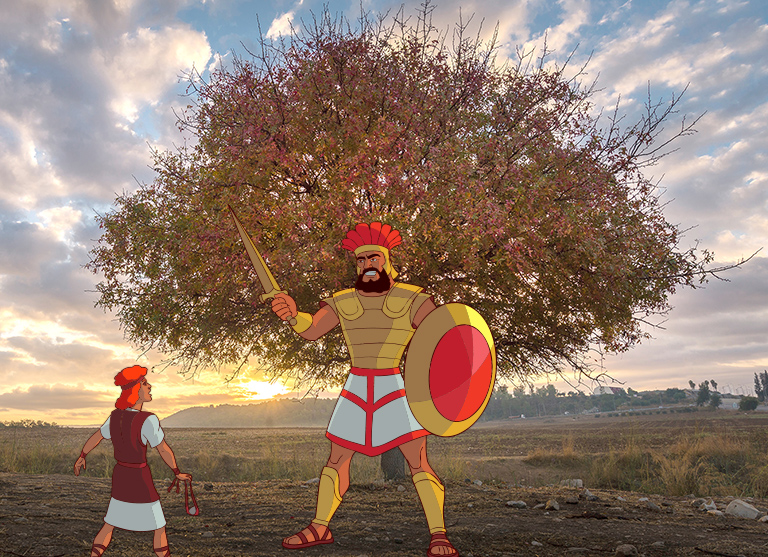
The site of the battle revealed
Learn Biblical Hebrew online
-
The Valley of Elah
According to the Bible, David and Goliath’s battle took place in the rolling hills separating the Israelite mountainous plateau from the Philistine coastal plain. The two armies stood on either side of a wide vale called the “The Valley of Elah” (1 Sam. 17:2). The word Elah אֵלָה means the “terebinth,” a species of deciduous tree which covered large portions of the Land of Israel in the days of the Bible.
Oaks and Terebinths
Terebinths appears often in the Bible. For example, Jacob buried his family’s foreign gods “under the terebinth tree near Shechem” (Gen. 35:4) and Absalom died by accidentally hanging from a terebinth (2 Sam. 18:9). A terebinth tree looks a lot like an oak tree (elon אֵלוֹן). Oaks are also common in Scripture: Abraham often camped near groves of oak trees: the “Oak (elon) of Moreh” (Gen. 12:6) and the “Oaks (elonei) of Mamre” (Gen. 18:1).
Uncover the nuances of the Scriptures
Both elah and elon come from the Hebrew root meaning “god” (el אל), because these trees were considered by the Canaanites to have divine strength and were worshipped by idolaters (Hosea 4:13). So, the location of the battle wasn’t accidental. This was a battle over belief. Who would prevail in the Valley of Elah: the one Lord of Israel (Elohim) or the numerous idolatrous gods (elim)? Enroll in our live online Biblical Hebrew courses and uncover hidden nuances of the familiar stories!





